Fleurs du Mal Magazine


Or see the index
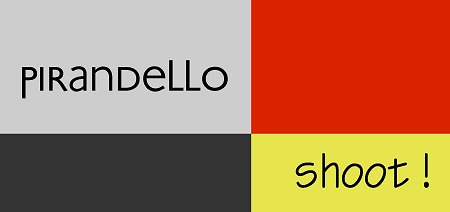
Luigi Pirandello: Shoot! (02)
Shoot! (Si Gira. 1926)
The Notebooks of Serafino Gubbio,
Cinematograph Operator
by Luigi Pirandello
Translated from the Italian by C. K. Scott Moncrieff
BOOK I
OF THE NOTES OF SERAFINO GUBBIO, CINEMATOGRAPH OPERATOR
2
I satisfy, by writing, a need to let off steam which is overpowering.
I get rid of my professional impassivity, and avenge myself as well; and with myself avenge ever so many others, condemned like myself to be nothing more than ‘a hand that turns a handle’.
This was bound to happen, and it has happened at last!
Man who first of all, as a poet, deified his own feelings and worshipped them, now having flung aside every feeling, as an
encumbrance not only useless but positively harmful, and having become clever and industrious, has set to work to fashion out of iron and steel his new deities, and has become a servant and a slave to them.
Long live the Machine that mechanises life!
Do you still retain, gentlemen, a little soul, a little heart and a little mind? Give them, give them over to the greedy machines, which are waiting for them! You shall see and hear the sort of product, the exquisite stupidities they will manage to extract from them.
To pacify their hunger, in the urgent haste to satiate them, what food can you extract from yourselves every day, every hour, every minute?
It is, perforce, the triumph of stupidity, after all the ingenuity and research that have been expended on the creation of these monsters, which ought to have remained instruments, and have instead become, perforce, our masters.
The machine is made to act, to move, it requires to swallow up our soul, to devour our life. And how do you expect them to be given back to us, our life and soul, in a centuplicated and continuous output, by the machines? Let me tell you: in bits and morsels, all of one pattern, stupid and precise, which would make, if placed one on top of another, a pyramid that might reach to the stars. Stars, gentlemen, no! Don’t you believe it. Not even to the height of a telegraph pole. A breath stirs it and down it tumbles, and leaves such a litter, only not inside this time but outside us, that–Lord, look at all the boxes, big, little, round, square–we no longer know where to set our feet, how to move a step. These are the products of our soul, the pasteboard boxes of our life.
What is to be done? I am here. I serve my machine, in so far as I turn the handle so that it may eat. But my soul does not serve me. My hand serves me, that is to say serves the machine. The human soul for food, life for food, you must supply, gentlemen, to the machine whose handle I turn. I shall be amused to see, with your permission, the product that will come out at the other end. A fine product and a rare entertainment, I can promise you.
Already my eyes and my ears too, from force of habit, are beginning to see and hear everything in the guise of this rapid, quivering, ticking mechanical reproduction.
I don’t deny it; the outward appearance is light and vivid. We move, we fly. And the breeze stirred by our flight produces an alert, joyous, keen agitation, and sweeps away every thought. On! On, that we may not have time nor power to heed the burden of sorrow, the degradation of shame which remain within us, in our hearts. Outside, there is a continuous glare, an incessant giddiness: everything flickers and disappears.
“What was that?” Nothing, it has passed! Perhaps it was something sad; but no matter, it has passed now.
There is one nuisance, however, that does not pass away. Do you hear it? A hornet that is always buzzing, forbidding, grim, surly,diffused, and never stops. What is it? The hum of the telegraph poles? The endless scream of the trolley along the overhead wire of the electric trams? The urgent throb of all those countless machines, near and far? That of the engine of the motor-car? Of the cinematograph?
The beating of the heart is not felt, nor do we feel the pulsing of our arteries. The worse for us if we did! But this buzzing, this perpetual ticking we do notice, and I say that all this furious haste is not natural, all this flickering and vanishing of images; but that there lies beneath it a machine which seems to pursue it, frantically screaming.
Will it break down?
Ah, we must not fix our attention upon it too closely. That would arouse in us an ever-increasing fury, an exasperation which finally we could endure no longer; would drive us mad.
On nothing, on nothing at all now, in this dizzy bustle which sweeps down upon us and overwhelms us, ought we to fix our attention. Take in, rather, moment by moment, this rapid passage of aspects and events, and so on, until we reach the point when for each of us the buzz shall cease.
(to be continued)
Luigi Pirandello: Shoot! (02)
kempis.nl poetry magazine
More in: -Shoot!
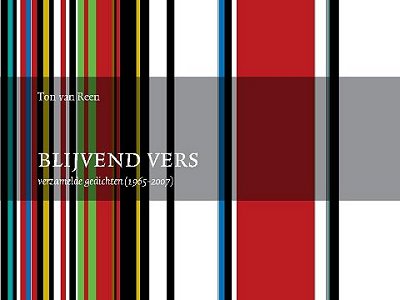
Ton van Reen
wit licht
Wit licht uit de hutten
wit de witte graanschuren
wit de rode bomen, wit de zwarte dieren
wit de adem van het dorp
die wit boven de hutten van wit riet hangt
Het licht wit het stof van de zwarte straten
wit stof wit de bruine ezels
wit stof wit de zwarte kinderen
zwarte kinderen zijn wit
in wit licht
zwarte kinderen zijn witter dan wit
Het witte stof wit het licht
het witte stof van de witte straat
het witte stof
van de witbestoven ezels
het witte licht van de zwarte kinderen
die wit stof tegen het witte licht blazen
Uit: Ton van Reen, Blijvend vers, Verzamelde gedichten (1965-2007). Uitgeverij De Contrabas, 2011, ISBN 9789079432462, 144 pagina’s, paperback
kempis.nl poetry magazine
More in: Archive Q-R, Reen, Ton van, Ton van Reen
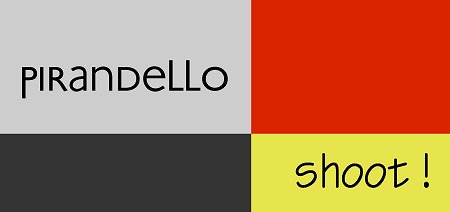
Luigi Pirandello: Shoot! (01)
Shoot! (Si Gira, 1926) The Notebooks of Serafino Gubbio, Cinematograph Operator
Translated from the Italian by C. K. Scott Moncrieff
Translator’s Dedication To O. H. H. and V. B. H. Who have seen and survived the Nestaroff.
BOOK I
OF THE NOTES OF SERAFINO GUBBIO CINEMATOGRAPH OPERATOR
1
I study people in their most ordinary occupations, to see if I can succeed in discovering in others what I feel that I myself lack in everything that I do: the certainty that they understand what they are doing.
At first sight it does indeed seem as though many of them had this certainty, from the way in which they look at and greet one another, hurrying to and fro in pursuit of their business or their pleasure. But afterwards, if I stop and gaze for a moment in their eyes with my own intent and silent eyes, at once they begin to take offence. Some of them, in fact, are so disturbed and perplexed that I have only to keep on gazing at them for a little longer, for them to insult or assault me.
No, go your ways in peace. This is enough for me: to know, gentlemen, that there is nothing clear or certain to you either, not even the little that is determined for you from time to time by the absolutely familiar conditions in which you are living. There is a ‘something more’ in everything. You do not wish or do not know how to see it. But the moment this something more gleams in the eyes of an idle person like myself, who has set himself to observe you, why, you become puzzled, disturbed or irritated.
I too am acquainted with the external, that is to say the mechanical framework of the life which keeps us clamorously and dizzily occupied and gives us no rest. To-day, such-and-such; this and that to be done hurrying to one place, watch in hand, so as to be in time at another.
“No, my dear fellow, thank you: I can’t!” “No, really? Lucky fellow!
I must be off….” At eleven, luncheon. The paper, the house, the office, school. … “A fine day, worse luck! But business….”
“What’s this? Ah, a funeral.” We lift our hats as we pass to the man who has made his escape. The shop, the works, the law courts….
No one has the time or the capacity to stop for a moment to consider whether what he sees other people do, what he does himself, is really the right thing, the thing that can give him that absolute certainty, in which alone a man can find rest. The rest that is given us after all the clamour and dizziness is burdened with such a load of weariness, so stunned and deafened, that it is no longer possible for us to snatch a moment for thought. With one hand we hold our heads, the other we wave in a drunken sweep.
“Let us have a little amusement!”
Yes. More wearying and complicated than our work do we find the amusements that are offered us; since from our rest we derive nothing but an increase of weariness.
I look at the women in the street, note how they are dressed, how they walk, the hats they wear on their heads; at the men, and the airs they have or give themselves; I listen to their talk, their plans; and at times it seems to me so impossible to believe in the reality of all that I see and hear, that being incapable, on the other hand, of believing that they are all doing it as a joke, I ask myself whether really all this clamorous and dizzy machinery of life, which from day to day seems to become more complicated and to move with greater speed, has not reduced the human race to such a condition of insanity that presently we must break out in fury and overthrow and destroy everything. It would, perhaps, all things considered, be so much to the good. In one respect only, though: to make a clean sweep and start afresh.

Here in this country we have not yet reached the point of witnessing the spectacle, said to be quite common in America, of men who, while engaged in carrying on their business, amid the tumult of life, fall to the ground, paralysed. But perhaps, with the help of God, we shall soon reach it. I know that all sorts of things are in preparation.
Ah, yes, the work goes on! And I, in my humble way, am one of those employed on this work ‘to provide amusement’.
I am an operator. But, as a matter of fact, being an operator, in the world in which I live and upon which I live, does not in the least mean operating. I operate nothing.
This is what I do. I set up my machine on its knock-kneed tripod. One or more stage hands, following my directions, mark out on the carpet or on the stage with a long wand and a blue pencil the limits within which the actors have to move to keep the picture in focus.
This is called ‘marking out the ground’.
The others mark it out, not I: I do nothing more than apply my eyes to the machine so that I can indicate how far it will manage to ‘take’.
When the stage is set, the producer arranges the actors on it, and outlines to them the action to be gone through.
I say to the producer:
“How many feet?”
The producer, according to the length of the scene, tells me approximately the number of feet of film that I shall need, then calls to the actors:
“Are you ready? Shoot!”
And I start turning the handle.
I might indulge myself in the illusion that, by turning the handle, I set these actors in motion, just as an organ-grinder creates the music by turning his handle. But I allow myself neither this nor any other illusion, and keep on turning until the scene is finished; then I look at the machine and inform the producer:
“Sixty feet,” or “a hundred and twenty.”
And that is all.
A gentleman, who had come out of curiosity, asked me once:
“Excuse me, but haven’t they yet discovered a way of making the camera go by itself?”
I can still see that gentleman’s face; delicate, pale, with thin, fair hair; keen, blue eyes; a pointed, yellowish beard, behind which there lurked a faint smile, that tried to appear timid and polite, but was really malicious. For by his question he meant to say to me:
“Is there any real necessity for you? What are you? A hand that turns the handle. Couldn’t they do without this hand? Couldn’t you be eliminated, replaced by some piece of machinery?”
I smiled as I answered:
“In time, Sir, perhaps. To tell you the truth, the chief quality that is required in a man of my profession is impassivity in face of the action that is going on in front of the camera. A piece of machinery, in that respect, would doubtless be better suited, and preferable to a man. But the most serious difficulty, at present, is this: where to find a machine that can regulate its movements according to the action that is going on in front of the camera. Because I, my dear Sir, do not always turn the handle at the same speed, but faster or slower as may be required. I have no doubt, however, that in time, Sir, they will succeed in eliminating me. The machine–this machine too, like all the other machines–will go by itself. But what mankind will do then, after all the machines have been taught to go by themselves, that, my dear Sir, still remains to be seen.”
(to be continued)
Luigi Pirandello: Shoot! (01)
kempis.nl poetry magazine
More in: -Shoot!
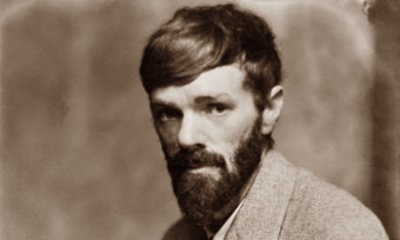
D. H. Lawrence
(1885-1930)
A Young Wife
The pain of loving you
Is almost more than I can bear.
I walk in fear of you.
The darkness starts up where
You stand, and the night comes through
Your eyes when you look at me.
Ah never before did I see
The shadows that live in the sun!
Now every tall glad tree
Turns round its back to the sun
And looks down on the ground, to see
The shadow it used to shun.
At the foot of each glowing thing
A night lies looking up.
Oh, and I want to sing
And dance, but I can’t lift up
My eyes from the shadows: dark
They lie spilt round the cup.
What is it? – Hark
The faint fine seethe in the air!
Like the seething sound in a shell!
It is death still seething where
The wild-flower shakes its bell
And the sky lark twinkles blue –
The pain of loving you
Is almost more than I can bear.
D. H. Lawrence poetry
fleursdumal.nl magazine
More in: Archive K-L, D.H. Lawrence, Lawrence, D.H.
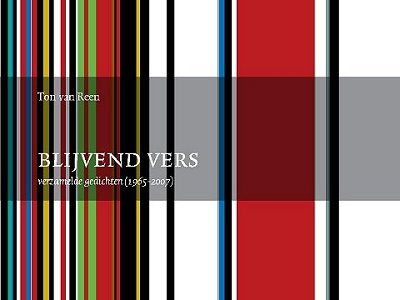
Ton van Reen
spitsuur
Een sirene jankt
en de dag
spat open
fabrieken lopen leeg
schoorstenen wuiven
de arbeiders na
auto’s spelen van
wie komt er in mijn hokje
langzaam lopend
in een rijtje
behangen ze de lucht
met hun ratelend hart
op hoge benen
lopen meisjes voorbij
ongemerkt halen ze
tussen zwoele wanden van ogen
de avond binnen
Uit: Ton van Reen, Blijvend vers, Verzamelde gedichten (1965-2007)
Uitgeverij De Contrabas, 2011, ISBN 9789079432462, 144 pagina’s, paperback
kempis.nl poetry magazine
More in: Archive Q-R, Reen, Ton van, Ton van Reen
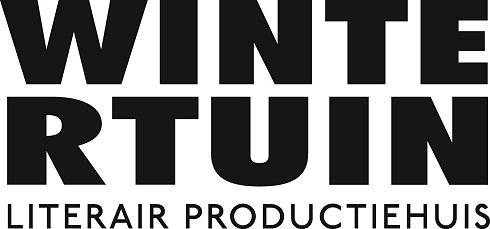
Wintertuinfestival: ‘Een vorm van verzet’
Met o.a. Cees Nooteboom, Kees van Kooten, Jules Deelder
Donderdag 24 t/m zaterdag 26 november in Nijmegen
Op het grootste literatuurfestival van Nederland naast zwaargewichten als Cees Nooteboom, Kees van Kooten, Jules Deelder, Vrouwkje Tuinman en A.L. Snijders, ook veel jong literair talent. Muzikanten Lenny Kuhr, Janne Schra, Blaudzun, Roy Santiago en GardenFest gaan met poëzie van Neeltje Maria Min aan de haal. Plus verrassende nieuwe Wintertuinproducties waaronder een kruisbestuiving van poëzie, rap en visuals, een filmverboeking, een podiumstrip en teksttheater. En dan zijn er nog colleges, masterclasses en debatten die dieper in gaan op het festivalthema: ‘een vorm van verzet’.
Highlights Programma:
DONDERDAG
Colleges, masterclasses en meer op de universiteit, met o.a. Kees van Kooten, Joris van Casteren, kunstenaar Jonas Staal en wiskundemeisje Ionica Smeets. ’s Avonds Poetracks in Doornroosje met poëzie van Neeltje Maria Min op muziek door Lenny Kuhr, Janne Schra, Blaudzun, Roy Santiago en GardenFest.
VRIJDAG
De Vlaamse schrijfster en illustrator Eva Mouton presenteert in Extrapool haar eerste magazine, gevuld met ongemakkelijke illustraties, gedachten en flarden van verhalen, en uitgegeven door Wintertuin. Eva deelt het podium met haar fans, vrienden, stalkers en bekenden: Ivo Victoria, Maarten Inghels, Hanneke Hendrix, Willem Claassen, Tiny Legs Tim en DJ Bertos.
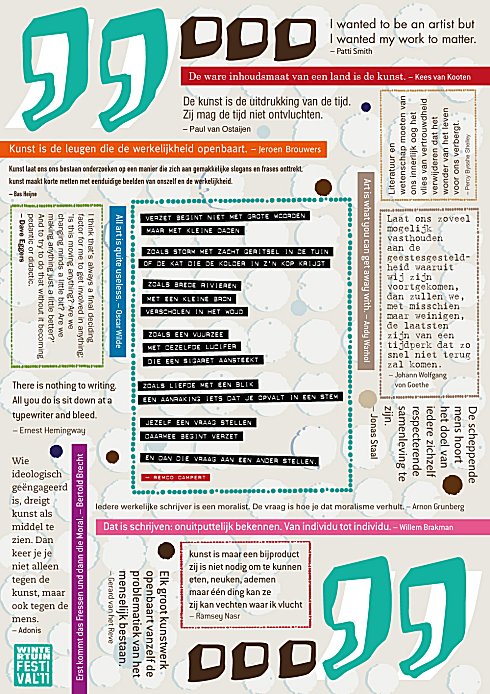
ZATERDAG
De keuze is reuze op dit literair muzikaal totaal variété in het Lindenberg Theater. Er zijn voordrachten van o.a. Cees Nooteboom, Jules Deelder, Jannah Loontjens en Vrouwkje Tuinman. A.L. Snijders vertelt over het belang van Nescio, en de nieuwe Wintertuinproducties Lucy, Short Story Cinema en Fauser zien het licht. De muzikale bijdragen zijn van Jules Deelder, Claw Boys Claw, Henk Hofstede en de Turntable Tampeloeresen. En er is theater, animatie, film en veel meer.
Festivalthema
Thema van het festival is ‘Een vorm van verzet’, naar het prachtige en actuele gedicht van Remco Campert, dat begint met de woorden ‘Verzet begint niet met grote woorden / maar met kleine daden’. Schrijvers, dichters, muzikanten, kunstenaars en wetenschappers onderzoeken de verschillende mogelijkheden om morele betrokkenheid te tonen in hun werk. Het thema keert terug in tal van programma’s. Kees van Kooten geeft in zijn college voorbeelden van gedragssatire, volgens hem de belangrijkste vorm van maatschappijkritiek. Cees Nooteboom deed verslag van de arbeiders- en studentenrevolte van 1968 in Parijs en was in Berlijn tijdens de val van De Muur. Hoe geëngageerd is hij? Joris van Casteren bespreekt de gevolgen van zijn literaire non-fictie: hij moest erdoor voor de rechter verschijnen. En waar legt Jonas Staal, aangeklaagd wegens ‘De Geert Wilders werken’, de grens tussen activisme en kunst?
Controversieel schrijver A.H.J. Dautzenberg presenteert zijn editie van Fauser: een stripverhaal over de reaguurder van deze eeuw, die zich verstopt achter zijn computer om anoniem onfatsoenlijke reacties achter te laten op webfora. Als ludiek antwoord op de digitalisering, kunnen bezoekers in de Ramsj-mobiel papieren boeken een tweede leven geven.
Locaties
Het festival speelt zich af op diverse locaties in Nijmegen: van Radboud Universiteit tot poppodium Doornroosje, en van Lindenberg Theater tot kunstpodium Extrapool.
Kaartverkoop
Kaarten zijn te koop via de website wintertuin.nl en bij de Nijmeegse voorverkoopadressen: Centrale Bibliotheek De Mariënburg en The Study Store op de Radboud Universiteit. Een passe-partout voor drie dagen festival kost € 25,- (€ 20 cjp/student), daarnaast zijn er ook losse kaarten verkrijgbaar.
Wintertuin is het eerste Nederlandse literaire productiehuis. Het productiehuis houdt kantoor in Nijmegen. Daar worden nieuwe producties op het snijvlak van literatuur en andere kunsten bedacht en ontwikkeld. Uitvoeringen vinden plaats op diverse podia, in musea en tijdens festivals in Nederland, België en Duitsland. Wintertuin brengt jaarlijks twee grote festivals voor literatuur: het Wintertuinfestival in Nijmegen en De geest moet waaien in Arnhem. Daarnaast organiseert Wintertuin tal van projecten en programma’s op locatie.
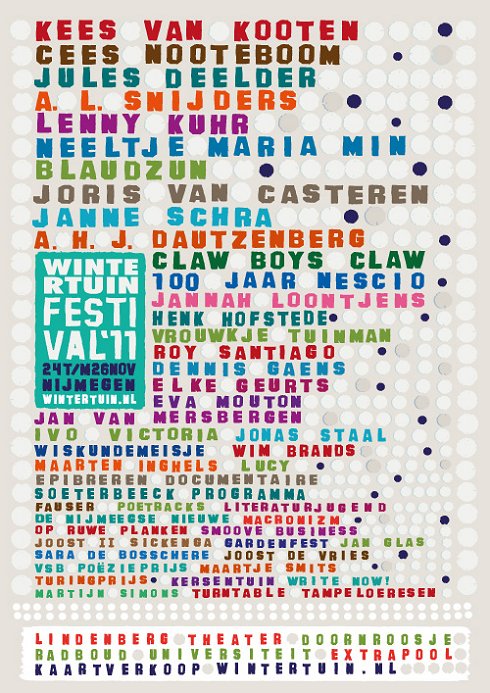
fleursdumal.nl magazine
More in: Art & Literature News, Cees Nooteboom, MUSIC, THEATRE, Wintertuin Festival
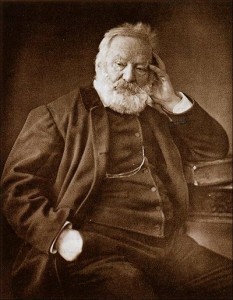
Victor Hugo
(1802-1885)
Jolies femmes
On leur fait des sonnets, passables quelquefois ;
On baise cette main qu’elles daignent vous tendre ;
On les suit à l’église, on les admire au bois ;
On redevient Damis, on redevient Clitandre ;
Le bal est leur triomphe, et l’on brigue leur choix ;
On danse, on rit, on cause, et vous pouvez entendre,
Tout en valsant, parmi les luths et les hautbois,
Ces belles gazouiller de leur voix la plus tendre :
– La force est tout ; la guerre est sainte ; l’échafaud
Est bon ; il ne faut pas trop de lumière ; il faut
Bâtir plus de prisons et bâtir moins d’écoles ;
Si Paris bouge, il faut des canons plein les forts. –
Et ces colombes-là vous disent des paroles
A faire remuer d’horreur les os des morts.
(Juillet 1870)

Victor Hugo: Jolies femmes
fleursdumal.nl magazine
More in: Archive G-H, Hugo, Victor, Victor Hugo
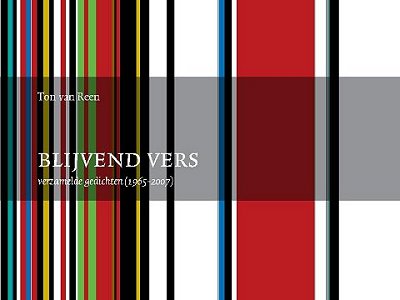
Ton van Reen
god zij geloofd is er pepsi
Welkom in St. Mary Hotel
we hebben pepsi: drie birr
we hebben brood met pepsi: vijf birr
daarom kent iedereen ons in Konso
soms hebben we mirinda
dan kunnen we u brood met mirinda aanbieden
kom terug als we mirinda hebben
maar we hebben altijd pepsi
‘s ochtends, ‘s middags en ‘s avonds
kunnen we u brood met pepsi aanbieden
want we hebben altijd pepsi
kijk maar naar de blauwe letters
op het witte pepsireclamebord
met de rode pepsivlag
en de rood-wit-blauwe pepsibal
iedereen in Konso weet het
iedereen is welkom in St. Mary hotel
voor een maaltijd met pepsi: vijf birr
god zij dank is er pepsi
anders at u bij ons alleen droog brood
maar gelukkig hebben wij brood met pepsi
pepsi is echt een uitkomst voor u
wij zijn er trots op, heel trots
dat wij altijd pepsi in huis hebben
jammer dat we juist vandaag geen pepsi hebben
en gisteren was er ook geen pepsi
en morgen misschien ook niet,
maar volgende week of zeker over twee weken
hebben wij pepsi in huis, heel zeker
kom over een paar weken terug in St. Mary Hotel
want we hebben altijd pepsi
Uit: Ton van Reen, Blijvend vers, Verzamelde gedichten (1965-2007)
Uitgeverij De Contrabas, 2011, ISBN 9789079432462, 144 pagina’s, paperback
kempis.nl poetry magazine
More in: Archive Q-R, Reen, Ton van, Ton van Reen
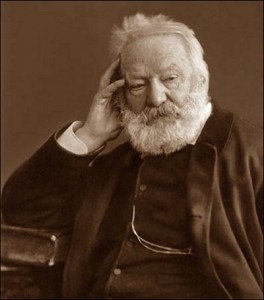
Victor Hugo
(1802-1885)
Exil
Si je pouvais voir, ô patrie,
Tes amandiers et tes lilas,
Et fouler ton herbe fleurie,
Hélas !
Si je pouvais, – mais, ô mon père,
O ma mère, je ne peux pas, –
Prendre pour chevet votre pierre,
Hélas !
Dans le froid cercueil qui vous gêne,
Si je pouvais vous parler bas,
Mon frère Abel, mon frère Eugène,
Hélas !
Si je pouvais, ô ma colombe,
Et toi, mère, qui t’envolas,
M’agenouiller sur votre tombe,
Hélas !
Oh ! vers l’étoile solitaire,
Comme je lèverais les bras !
Comme je baiserais la terre,
Hélas !
Loin de vous, ô morts que je pleure,
Des flots noirs j’écoute le glas ;
Je voudrais fuir, mais je demeure,
Hélas !
Pourtant le sort, caché dans l’ombre,
Se trompe si, comptant mes pas,
Il croit que le vieux marcheur sombre
Est las.

Victor Hugo: Exil
fleursdumal.nl magazine
More in: Archive G-H, Archive G-H, Hugo, Victor, Victor Hugo
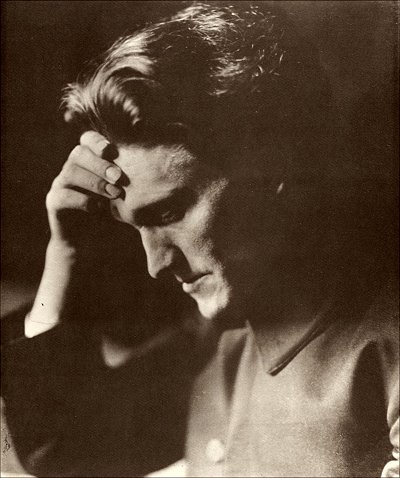
Stefan George
(1868-1933)
Nietzsche
Schwergelbe wolken ziehen überm hügel
Und kühle stürme – halb des herbstes boten
Halb frühen frühlings … Also diese mauer
Umschloss den Donnerer – ihn der einzig war
Von tausenden aus rauch und staub um ihn?
Hier sandte er auf flaches mittelland
Und tote stadt die lezten stumpfen blitze
Und ging aus langer nacht zur längsten nacht.
Blöd trabt die menge drunten · scheucht sie nicht!
Was wäre stich der qualle · schnitt dem kraut!
Noch eine weile walte fromme stille
Und das getier das ihn mit lob befleckt
Und sich im moderdunste weiter mästet
Der ihn erwürgen half sei erst verendet!
Dann aber stehst du strahlend vor den zeiten
Wie andre führer mit der blutigen Krone.
Erlöser du! selbst der unseligste –
Beladen mit der wucht von welchen losen
Hast du der sehnsucht land nie lächeln sehn?
Erschufst du götter nur um sie zu stürzen
Nie einer rast und eines baues froh?
Du hast das nächste in dir selbst getötet
Um neu begehrend dann ihm nachzuzitten
Und aufzuschrein im schmerz der einsamkeit.
Der kam zu spät der flehend zu dir sagte:
Dort ist kein weg mehr über eisige felsen
Und horste grauser vögel – nun ist not:
Sich bannen in den Kreis den liebe schliesst..
Und wenn die strenge und gequälte stimme
Dann wie ein loblied tönt in blaue nacht
Und helle flut – so klagt: sie hätte singen
Nicht reden sollen diese neue seele!
Stefan George, Aus der Sammlung Zeitgedichte
kempis.nl poetry magazine
More in: Archive G-H, Friedrich Nietzsche, George, Stefan, MONTAIGNE
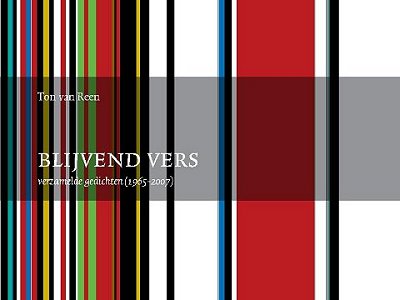
Ton van Reen
dorpsverhaal
op een mooie winterdag
nauw na het ochtendgloren
werd het lichaam
van een duits soldaat
in de rivier gevonden
– een jongen nog
en zonder naam –
tot zijn middel vastgevroren
in een korst
van wier en lissen
de smalle handen
op de rug gebonden
met messcherp koperdraad
het hoofd net boven water
zijn hals gespleten
één grote kogelwond
zijn witte tanden bloot
in een mond
vol verstomde kreten
die open stond
van dorst naar leven
zodat hij nog verrast was
door de dood
hoewel hij door de vissen
al was afgeschreven
Uit: Ton van Reen, Blijvend vers, Verzamelde gedichten (1965-2007)
Uitgeverij De Contrabas, 2011, ISBN 9789079432462, 144 pagina’s, paperback
kempis.nl poetry magazine
More in: Reen, Ton van, Ton van Reen
![]()
Ramsey Nasr & Hagar Peeters
in Poetry concert van Magogo
Ramsey Nasr, Hagar Peeters en Cees van Raak brengen samen met Magogo Kamerorkest en sopraan Charlotte Schoeters een avond vol poëzie en klassieke muziek. De avond Poetry on a String vindt plaats op zaterdag 5 november vanaf 20:30 uur in Concertzaal Tilburg.
Schrijver, acteur, regisseur en Dichter des Vaderlands Ramsey Nasr wordt geroemd om zijn virtuoze gedichten waarin, onder de glans van melancholie, vileine krassen en barsten schuilgaan. Afgelopen zomer nog maakte hij grote indruk met zijn toespraak bij de Mars der Beschaving in Den Haag. De taal van dichteres Hagar Peeters is juist speels, subtiel en soms ook licht satirisch. Cees van Raak, Stadsdichter van Tilburg (2009 tot 2011), kijkt in zijn werken met een scherpe blik naar de gebeurtenissen in deze stad. Componist, dirigent en dichter Micha Hamel is gastdirigent deze avond; Poetry on a String belooft dan ook een bijzondere kruisbestuiving tussen grote talenten te worden. Woord en muziek smelten samen tot een sfeervol concert waarbij Magogo zich laat inspireren door prachtige poëzie en vice versa!
Magogo Kamerorkest is gevestigd in Tilburg en is sinds vijf jaar huisorkest van Concertzaal Tilburg. Magogo brengt zowel ‘puur klassieke’ concerten als ook cross-overs, waarin klassieke muziek de verbinding aangaat met een ander genre. Daarnaast biedt Magogo ruimte aan jonge talenten en speelt het orkest nieuw geschreven werk en arrangementen. De beleving van de muziek zoals Magogo die maakt, wordt versterkt door visuele elementen, verrassende intermezzo’s, spannende nieuwe composities en unieke gasten. Camera’s kruipen in het orkest, sfeerbeelden visualiseren de muziek, dirigent Arjan Tien en zijn enthousiaste musici vertellen vanaf het podium meer over de muziek.
Magogo Kamerorkest – Poetry on a String – dirigent: Micha Hamel | dichters: Ramsey Nasr, Hagar Peeters & Cees van Raak | sopraan: Charlotte Schoeters
Sibelius: Grevinnans Konterfej | Zemlinsky: Maiblumen blühten überall | Schoeck: Sommernacht | Vivaldi: La Tempesta di Madre | Janco Verduin: nieuw werk op gedicht van Ramsey Nasr
za 5 november – Concertzaal Tilburg 20:30 uur
Informatie: www.theaterstilburg.nl
fleursdumal.nl magazine
More in: #Editors Choice Archiv, Literary Events, Peeters, Hagar, Raak, Cees van, Ramsey Nasr
Thank you for reading Fleurs du Mal - magazine for art & literature